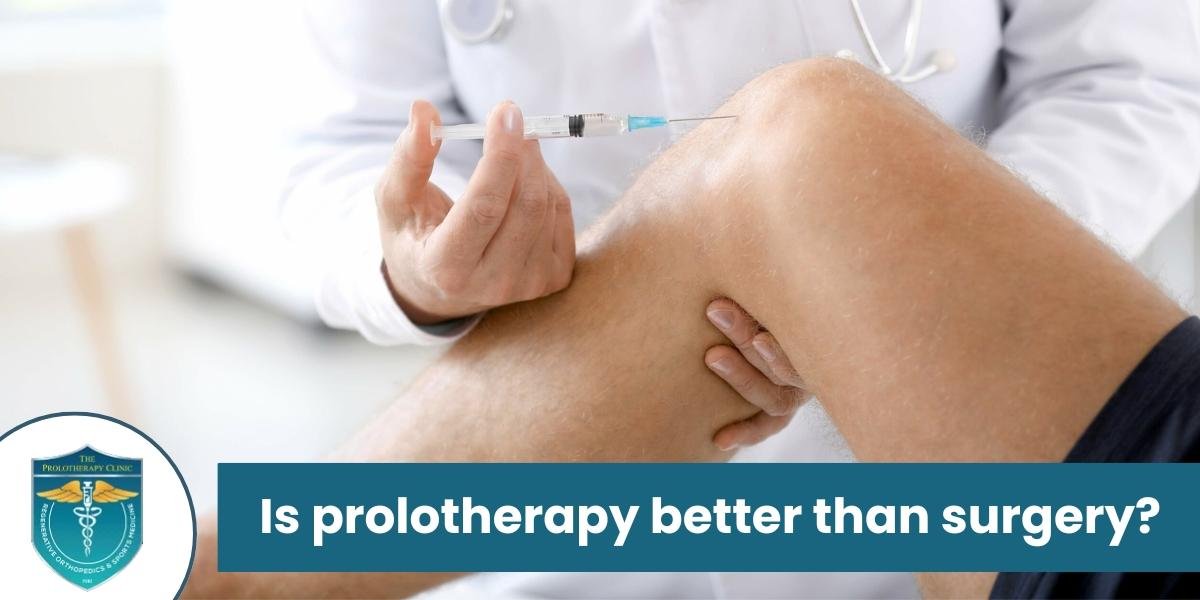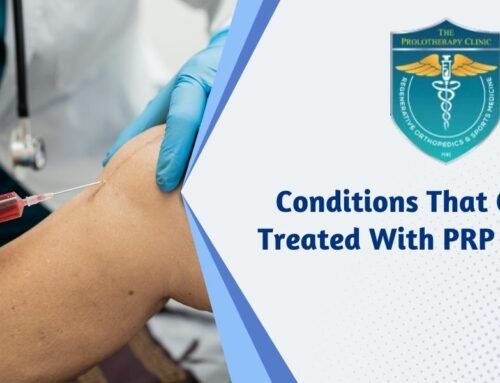When it comes to treating chronic pain, joint injuries, or musculoskeletal conditions, patients often face a critical decision: should they opt for surgery or explore non-surgical alternatives like prolotherapy? This question is especially relevant for those seeking long-term relief without the risks and downtime associated with invasive procedures.
What is Prolotherapy?
Prolotherapy, also known as regenerative injection therapy, is a non-surgical treatment that stimulates the body’s natural healing processes. It involves injecting a solution (often containing dextrose or other natural substances) into damaged ligaments, tendons, or joints. This injection triggers a mild inflammatory response, which promotes tissue repair and strengthens weakened structures.
Prolotherapy is commonly used to treat conditions such as:
- Osteoarthritis
- Tendonitis
- Ligament injuries
- Chronic back or neck pain
- Sports injuries
- Joint instability
Prolotherapy vs. Surgery: Key Differences
- Non-Invasive vs. Invasive
Prolotherapy is a minimally invasive procedure performed in an outpatient setting. It does not require incisions, anesthesia, or a lengthy recovery period. On the other hand, surgery is invasive, often involving significant downtime, potential complications, and a higher risk of infection. - Natural Healing vs. Artificial Repair
Prolotherapy leverages the body’s innate ability to heal itself, making it a more natural approach. Surgery, while effective, often involves artificial repairs like joint replacements or ligament reconstructions, which may not fully restore natural function. - Cost-Effectiveness
Prolotherapy is generally more affordable than surgery, which can involve hospital stays, post-operative care, and rehabilitation. For patients seeking a cost-effective solution, prolotherapy is an attractive option. - Recovery Time
Recovery from prolotherapy is typically quick, with most patients resuming normal activities within a few days. Surgery, however, can require weeks or even months of rehabilitation and restricted activity. - Long-Term Outcomes
While surgery can provide immediate relief, prolotherapy focuses on addressing the root cause of pain by promoting tissue regeneration. Many patients experience long-lasting relief after a series of prolotherapy sessions.
When is Surgery Necessary?
While prolotherapy offers numerous benefits, surgery may still be the best option in certain cases, such as:
- Severe joint damage or degeneration
- Complex fractures
- Conditions that do not respond to conservative treatments
- Instances where immediate intervention is required
It’s essential to consult with an experienced orthopedic doctor to determine the most appropriate treatment for your specific condition.
Why Choose Prolotherapy?
For many patients, prolotherapy is a viable alternative to surgery, offering several advantages:
- Minimal Risks: Prolotherapy has fewer risks and side effects compared to surgery.
- No Downtime: Most patients can return to their daily activities shortly after treatment.
- Holistic Approach: It addresses the underlying cause of pain rather than just masking symptoms.
- Customizable Treatment: Prolotherapy can be tailored to target specific areas of concern.
Dr. Vikram Rajguru – Orthopedic Specialist in Pune
If you are considering prolotherapy or exploring non-surgical treatment options, The Prolotherapy Clinic in Pune is your go-to destination. Led by Dr. Vikram Rajguru, a renowned orthopedic doctor with extensive experience in regenerative medicine.
Dr. Vikram Rajguru specializes in treating a wide range of orthopedic conditions, including joint pain, sports injuries, and chronic musculoskeletal disorders.
Locations: Hadapsar, Pimple Saudagar, Kharadi & Baner areas of Pune
Services: Prolotherapy, PRP therapy, orthopedic consultations, and more
Conclusion: Is Prolotherapy Better Than Surgery?
The answer depends on your specific condition, medical history, and treatment goals. While surgery may be necessary in some cases, prolotherapy offers a safe, effective, and non-invasive alternative for many patients. By stimulating the body’s natural healing processes, prolotherapy can provide long-term relief without the risks and downtime associated with surgery.




